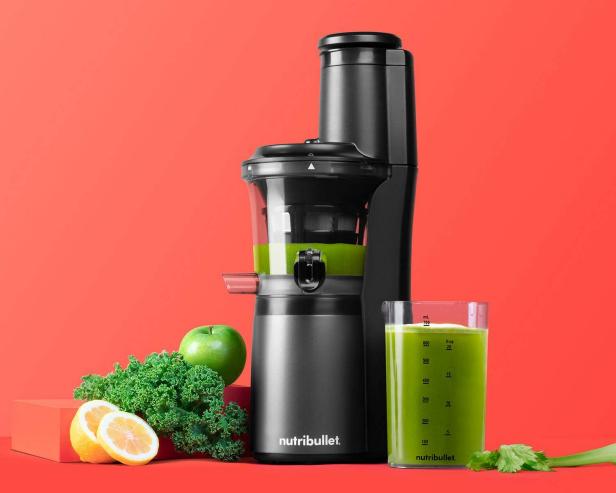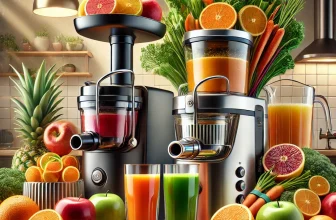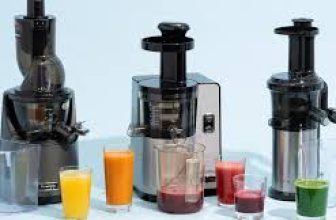As an Amazon Associate I earn from qualifying purchases.
What Is The Best Juicer In The Market?
What Is The Best Juicer In The Market? Choosing the best juicer on the market might seem like an overwhelming task, but knowing what to look for can simplify the process. Did you know that over 80% of juice enthusiasts believe that the quality of their juicer significantly impacts their overall health and wellness journey? With a myriad of options available, selecting the right one can make a profound difference in both nutrient preservation and taste.
No products found.
In recent years, masticating juicers have gained popularity due to their ability to extract maximum nutrients from fruits and vegetables. Although centrifugal juicers have dominated the market for decades, it’s the slow, cold-press masticators that are now recognized for yielding richer, smoother juices. Juicers like the Omega J8006HDS often top expert lists thanks to their efficiency, durability, and ability to handle diverse produce.

What is the best juicer in the market?
Finding the best juicer can be tricky with so many options available. Different kinds offer various benefits, from juice yield to nutrient retention. Here’s a list of popular types of juicers:
- Masticating Juicers
- Centrifugal Juicers
- Twin-Gear Juicers
Masticating juicers, often called slow juicers, squeeze out the most nutrients. They work slower but are highly efficient in extracting juice, perfect for leafy greens and wheatgrass. Centrifugal juicers, on the other hand, are faster but might leave some nutrients behind.
When it comes to cost, masticating juicers can be more expensive, but they are usually more durable. Centrifugal juicers are generally cheaper and good for beginners. It’s essential to balance your budget and your juicing needs.
Lastly, consider the ease of cleaning. A juicer that’s hard to clean can be discouraging to use regularly. Many high-end models have dishwasher-safe parts, making cleanup simple.
Different Types of Juicers
Understanding the different types of juicers can help you decide which one suits your needs best. There are three primary categories you should be aware of:
- Centrifugal Juicers
- Masticating Juicers
- Twin-Gear Juicers
Centrifugal juicers are the most common and usually the most affordable. They use a fast-spinning blade to extract juice quickly, but they might not preserve as many nutrients. These juicers are great for those who want a quick and easy juicing experience.
Masticating juicers, also known as slow juicers, use a slower grinding method to squeeze out juice. This process helps retain more nutrients and enzymes from fruits and vegetables. They are ideal for those who prioritize nutrition and are okay with a bit more preparation time.
Twin-gear juicers are the most advanced and typically the most expensive. They use two gears to crush and grind produce, which results in maximum juice yield and nutrient retention. These juicers are best for dedicated juicers who want to get the most out of their ingredients.
Cost-Effectiveness of the Juicers
When it comes to juicers, cost-effectiveness plays a crucial role in the decision-making process. Centrifugal juicers are generally more budget-friendly, making them an attractive choice for beginners. However, they may not offer the same durability as other types, potentially requiring replacements sooner.
Masticating juicers, while more expensive up-front, often provide better value over time. These juicers are built to last and are known for their efficiency in extracting juice. This means you’ll get more juice from the same amount of produce, translating to savings in the long run.
Twin-gear juicers are the most expensive, but they offer exceptional performance and longevity. They are ideal for those who juice regularly and are serious about nutrition. Though the initial cost is high, their robust construction and high yield can make them a wise investment.
To help you compare, here’s a quick table on the cost-effectiveness of different juicer types:
| Type | Initial Cost | Durability | Juice Yield |
|---|---|---|---|
| Centrifugal | Low | Moderate | Average |
| Masticating | Moderate | High | High |
| Twin-Gear | High | Very High | Very High |
Efficiency and Durability of the Juicers
Efficiency and durability are crucial factors when choosing a juicer. An efficient juicer will extract the maximum amount of juice, minimizing waste. Durability ensures that the juicer will last for years, making it a wise investment for health enthusiasts.
Centrifugal juicers are known for their speed and ease of use. However, they may not be as efficient as masticating or twin-gear juicers. They often leave behind wetter pulp, indicating less juice extraction.
Masticating juicers excel in efficiency, squeezing out more juice from fruits and vegetables. They are also built to last, often featuring sturdy components. These juicers are ideal for those who juice frequently and want to make the most of their produce.
Twin-gear juicers offer the highest efficiency in juice extraction. They can handle tough ingredients and leafy greens with ease. Their robust build ensures they remain functional for many years, making them a top choice for dedicated juicers.
Here’s a table summarizing the efficiency and durability of different juicer types:
| Type | Efficiency | Durability |
|---|---|---|
| Centrifugal | Moderate | Moderate |
| Masticating | High | High |
| Twin-Gear | Very High | Very High |
When assessing efficiency, consider how much juice is extracted and the dryness of the pulp. For durability, look into the materials used and the juicer’s overall build quality. Well-constructed juicers may come with warranties, reflecting the manufacturer’s confidence in their longevity.
Performance in terms of Yield and Pulp
Understanding a juicer’s performance in terms of yield and pulp is essential for making an informed decision. Yield refers to the amount of juice extracted from the produce. Pulp quality can indicate the efficiency of the juicer; dry pulp means more juice has been extracted.
Centrifugal juicers often leave behind wetter pulp, suggesting less efficient juice extraction. They are faster but may compromise juice yield and nutrient retention. These juicers might be less appealing for those looking to get the most out of their fruits and vegetables.
Masticating juicers provide higher juice yields with drier pulp. They slowly grind the produce to extract maximum juice content. This type of juicer is ideal for leafy greens and wheatgrass, extracting more nutrients and juice.
Twin-gear juicers are unparalleled in their performance concerning yield and pulp. They produce very dry pulp, reflecting their exceptional juice extraction capabilities. Their dual gears crush and press produce thoroughly, making them perfect for juicing enthusiasts.
A quick comparison of juicer types based on yield and pulp:
| Type | Juice Yield | Pulp Dryness |
|---|---|---|
| Centrifugal | Moderate | Moist |
| Masticating | High | Dry |
| Twin-Gear | Very High | Very Dry |
To maximize juice yield, consider the type of produce you frequently juice. For soft fruits, centrifugal juicers might suffice, but for leafy greens and harder produce, masticating or twin-gear juicers are better options. Always check the pulp left behind to gauge the juicer’s efficiency.
Power and Speed of the Juicers
The power and speed of juicers can significantly impact the juicing experience. High-powered juicers typically come with faster speeds, allowing quicker juice extraction. However, speed isn’t the only factor to consider; balance between speed and power is essential for optimal performance.
Centrifugal juicers usually operate at high speeds, making them suitable for quick juicing. These juicers can process large quantities of produce swiftly, but the high speed may generate heat. Heat can reduce nutrient quality and cause the juice to oxidize faster.
Masticating juicers function at slower speeds, but they are more thorough in juice extraction. Lower speeds help maintain the integrity of nutrients since minimal heat is produced. These juicers are perfect for those who prioritize health benefits over speed.
Twin-gear juicers offer a balanced approach, combining moderate speed with high power. They effectively handle hard and soft produce without compromising juice quality. These juicers ensure maximum yield while preserving essential nutrients.
To help gauge power and speed, here’s a table summarizing different juicer types:
| Type | Speed | Power |
|---|---|---|
| Centrifugal | High | Moderate |
| Masticating | Low | High |
| Twin-Gear | Moderate | Very High |
When considering juicers, weigh the benefits of speed against the quality of juice produced. Faster juicers may suit busy lifestyles, while slower, powerful ones ensure nutrient-rich juices. Choose according to your priorities and juicing habits.
Maintenance and Cleaning of the Juicers
Maintaining and cleaning your juicer is crucial for both hygiene and efficiency. Easy-to-clean juicers will save time and encourage frequent use. Different types of juicers require varying levels of maintenance.
Centrifugal juicers are often easier to clean due to their simple design. Most parts can be easily disassembled and are dishwasher-safe. However, the high-speed blades might need extra care to remove all residue.
Masticating juicers usually have more parts, making cleaning a bit more involved. These models may come with specialized brushes to help with thorough cleaning. Despite requiring more effort, their slow operation means less juice splatter and easier long-term maintenance.
Twin-gear juicers have several components that need careful attention during cleaning. Some parts can be challenging to wash, but they often yield cleaner juice, which reduces buildup over time. Regularly maintaining these junctures ensures prolonged performance.
The following table provides an overview of the maintenance requirements for different juicer types:
| Type | Ease of Cleaning | Maintenance Effort |
|---|---|---|
| Centrifugal | High | Low |
| Masticating | Moderate | Moderate |
| Twin-Gear | Low | High |
Selecting a juicer with easy maintenance can improve your overall experience. Look for models with fewer detachable parts if you prefer quick clean-ups. Consistent care will ensure your juicer remains in top condition for years.
Portability of the Juicers
Portability is an important factor for people who travel frequently or have limited kitchen space. A portable juicer allows you to enjoy fresh juice anytime, anywhere. When considering portability, look at the juicer’s weight, size, and design.
Centrifugal juicers are generally bulkier and less portable. They often require more counter space and can be heavier. However, they offer speedy juice extraction, which can be a trade-off for some users.
Masticating juicers are typically more compact and lighter, making them easier to move around. Their slim design fits well into smaller kitchen spaces. Despite their size, these juicers maintain excellent juice quality and efficiency.
For ultra-portability, consider manual or battery-operated juicers. These models do not require electrical outlets and can be used virtually anywhere. They are perfect for outdoor activities or small kitchens.
To help you compare, here’s a quick table on the portability of different juicer types:
| Type | Weight | Size | Portability |
|---|---|---|---|
| Centrifugal | Heavy | Large | Low |
| Masticating | Moderate | Compact | High |
| Manual/Battery-Operated | Light | Small | Very High |
Highly portable juicers can make a big difference in maintaining a healthy lifestyle on the go. Choose a juicer that fits your needs for travel, convenience, and space. This ensures you can enjoy freshly made juice wherever you are.
Warranty and Customer Service
Warranty and customer service are essential factors to consider when purchasing a juicer. A good warranty can save you money and stress if something goes wrong. Reputable companies often offer longer warranties as a sign of their product’s reliability.
Most centrifugal juicers come with a one to two-year warranty. This is relatively short but reflects their simpler build and lower cost. While basic, it provides adequate coverage for minor issues.
Masticating juicers usually come with more extended warranties, often ranging from five to ten years. These warranties demonstrate the manufacturer’s confidence in their durability. Extended warranties can be a significant advantage for long-term juicing.
Twin-gear juicers often have some of the longest warranties, sometimes up to 12 years. These warranties ensure that customers receive high-quality support if any problems arise. Comprehensive coverage can make these expensive models a more attractive investment.
Customer service experiences can vary, so it’s helpful to research online reviews before purchasing. Look for companies that are responsive and provide helpful solutions. Good customer service can make your juicing experience much smoother.
Here’s a table to compare the warranties and customer service of different juicer types:
| Type | Warranty Length | Customer Service Quality |
|---|---|---|
| Centrifugal | 1-2 years | Moderate |
| Masticating | 5-10 years | High |
| Twin-Gear | Up to 12 years | Very High |
Reliable warranty and excellent customer service provide peace of mind. Choosing a juicer with solid support ensures you can enjoy your device for years. Always consider these factors for a satisfying purchase.
Frequently Asked Questions
Choosing the best juicer can be challenging with so many options available. Here are some common questions people have when deciding which juicer to buy.
1. How do masticating juicers compare to centrifugal juicers?
Masticating juicers operate at a slow speed, which preserves more nutrients and enzymes in the juice. They are quieter and can handle leafy greens and wheatgrass better than centrifugal juicers.
Centrifugal juicers, on the other hand, work at high speeds, making them faster but less efficient at nutrient retention. They are great for hard fruits and vegetables but might not extract as much juice from leafy greens.
2. Are twin-gear juicers worth the extra cost?
Twin-gear juicers, also known as triturating juicers, provide the highest juice yield and nutrient preservation among all types of juicers. They use two gears to crush produce thoroughly, ensuring maximum extraction.
These juicers are more expensive but ideal for serious juice enthusiasts who prioritize quality over cost. Their durability and efficiency often justify the higher price tag in the long run.
3. What should I look for in a portable juicer?
When looking for a portable juicer, consider factors like weight, size, and power source. Manual or battery-operated options offer excellent portability as they don’t require an electrical outlet.
Look for compact models that are easy to carry and clean. Ensure it’s powerful enough to handle your preferred fruits and vegetables without sacrificing efficiency.
4. How important is warranty coverage on a juicer?
A good warranty is crucial because it provides peace of mind and protection against defects or malfunctions. Longer warranties often indicate higher-quality construction and materials used in the device.
Masticating and twin-gear juicers typically come with more extended warranties compared to centrifugal models. Always check what the warranty covers before making a purchase decision.
5. Can cleaning be a deal-breaker when selecting a juicer?
The ease of cleaning can significantly influence how often you use your juicer. Models that are difficult to clean might discourage daily usage due to inconvenience.
Many high-end models have dishwasher-safe parts or come with cleaning brushes that make maintenance easier. Choosing an easy-to-clean model can enhance your overall experience greatly.
Conclusion
Choosing the best juicer involves considering various factors such as efficiency, durability, portability, and ease of cleaning. Each type of juicer—whether centrifugal, masticating, or twin-gear—offers unique benefits. Selecting the right one depends on your specific needs and priorities.
From nutrient retention to warranty coverage, every detail matters in making an informed decision. Investing in a high-quality juicer can elevate your health journey, ensuring you enjoy fresh, nutritious juices for years to come.

Maksuda Khanam is a passionate home appliance expert and the primary author behind KitchenMarts.com






